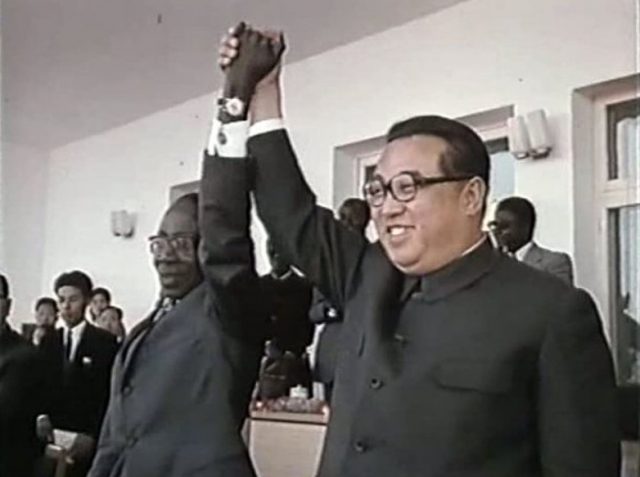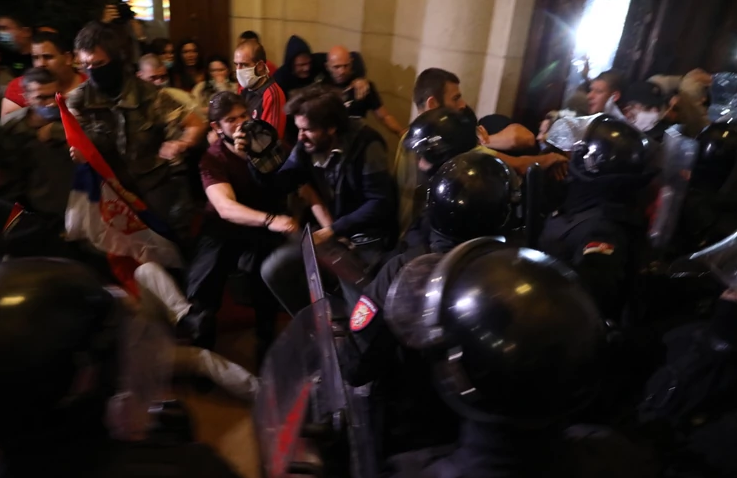During the pandemic of COVID-19, science has played an exceptionally important role in the public discourse. On the one hand, we have seen numerous policies and measures being imposed or carried out based on the idea that they had been approved by scientists and experts. Science and expertise became a way of avoiding all debate and portraying all opposition to the measures at hand as mistaken, harmful, irrational and backward. On the other hand, there has been a resurgence of various conspiracy theories offering “real” explanations for what was going on often linking the pandemic with the issues of vaccination, immigration, 5G technologies, digital surveillance, etc. Proponents of these conspiracy theories usually reject the official scientific rationale behind the policies and measures being undertaken looking for a “correct” conspiratorial account that explains the official one. In that sense, a polarization of public discourse has been created whereby the word of Science and Expertise became the unquestioned truth and ultimate justification for any policy for one portion of the population while for another segment of the population, the scientific rationale behind a given measure became nothing but a façade for a pernicious underlying plan of the elite. It should be noted that it has become extremely difficult to steer some kind of middle course where one does not automatically accept the official line without immediately invoking elaborate, unproven conspiracy theories, which often fail the test of plausibility.
In such a situation, the question of what the Marxist attitude towards these matters should be becomes highly pertinent as Marxism embraced the scientific, fact-based worldview while being highly distrustful of the establishment and the elites of any kind due to the fact that elites belong to the opposing side of the class conflict defending the interests of the bourgeoisie against the proletariat. The goal of this essay will be to provide an answer to this question and outline the political implications of this polarization on the issue of science. It will be argued that Marxism must not abandon its intellectual roots in science and rationality but the adherence to these principles does not entail the automatic adoption of all policies, measures, positions and explanations that have the aura of science and expertise around them. On the other hand, the Marxist stance towards conspiracy theories is not to rule out any kind of conspiratorial account a priori, but to insist on clear thinking and standards of intellectual clarity and argumentation, which most conspiracy theories that are present in the public discourse fail to meet. Moreover, in general, conspiracy theories usually involve moralistic accounts where a particular individual (e.g. Bill Gates, George Soros, etc.) is portrayed as villain who is out to harm ordinary people, who are portrayed as honest, decent and moral. These morality tales are also often inflected with various rightwing assumptions revolving around religion, race, ethnicity, etc. In contrast to such narrative account, Marxism privileges structural analysis, which means that policies, measures and proposals are evaluated from the standpoint of their socio-economic and political effects. As a result, Marxist analyses do not look for villains and heroes. Instead, they are focused on issues of profit, capital accumulation, ideological hegemony, etc.
Marxism also enables us to analyze the political and ideological effects of polarization created by the opposition between uncritical obedience to the professed view of experts and the automatic rejection of science in favor of conspiratorial thinking. Such a polarization works directly in the interests of the bourgeoisie because blind adherence to the views of experts enables the bourgeoisie to justify any policy by attaching a label of ‘expert opinion’ to it. Any opposition to the supposed view of experts is smeared as conspiracy theory and effectively dismissed in that way. The existence of conspiracy theories represents an impotent challenge to the bourgeois rule because these theories do not focus on the nature of the capitalist system as they are concerned primarily with individuals and ethnic, racial and religious groups but they almost never address the issue of class.
The idea that the opinions of scientists and experts should not be automatically accepted is probably the most contentious part of the argument presented here, which is why a large portion of this essay will be devoted to demonstrating that this is, in fact, a correct position to take both based on Marxist theory and based on the historical record.
Science and Conspiracy Theories
Marxism is, of course, a secular doctrine coming out of the modern Enlightenment tradition of political theorizing, and as such it upholds the scientific worldview. The Marxist view of science is positive because the development of science leads to the improvement in the technological capacities (the means of production) making them capable of producing more material wealth, which is a precondition for overcoming scarcity. Moreover, science and rationality are the only tools that lead to the demystification of ideological constructs that justify bourgeois rule. At the same time, this abstract property of science cannot be fully realized in a class society because the bourgeoisie control the material resources that are necessary for scientific and technological development. In this way, the bourgeoisie steers scientific development towards its own class interests and away from the interests of the proletariat. The bourgeoisie also recognizes the ideological power of science and attempts to use it as an ideological tool. These obstacles in the way of scientific development cannot be eliminated without the elimination of the capitalist mode of production. The remainder of the article will provide concrete illustrations and evidence for these theoretical claims.
Let us start with the theoretical or ideological side of the issue. The discipline known as sociology of science rests on the commonsense assumption that scientific knowledge is produced by actual people working inside scientific institutions that are embedded into state and corporate structures. As Bruno Latour points out, the scientific community, as any other community of people, operates according to its own internal logic where questions of power, status and prestige compete with other principles such as rational inquiry, production of knowledge, public interest and ordinary morality[1]. This nexus of factors ensures that the knowledge that comes out of scientific institutions is not always completely objective and value neutral.
It is important to notice the difference between the conspiratorial account, which treats science as a hostage of evil individuals, and the Marxian structuralist position, which treats scientific knowledge as a product of a particular set of social institutions (universities, labs, institutes, etc.). The conspiratorial logic holds that scientific knowledge is almost always false and distorted in the interests of whoever is the villain of the conspiracy theory at hand. On the other hand, the structuralist account holds that scientific knowledge is the best approximation to truth that is currently available but that it can also contain distortions, which stem from it being the product of social institutions embedded into state and corporate structures. The fact that state and corporate institutions impact the scientific institutions suggests that these distortions in scientific knowledge will occasionally appear will favor political and ideological interests of the bourgeoisie and disfavor the results, findings and theories that challenge the bourgeois rule.
Evolutionary theory is a good example of how ideological and political concerns tend to suppress the actual scientific theorizing in favor of a simplistic view that is in line with bourgeois ideology. Edward Wilson, an evolutionary biologist from Harvard, created the discipline of sociobiology as an approach to social science derived from Darwinian evolution. According to Wilson, socioeconomic inequalities that exist in the modern society and have existed in virtually all human societies are rooted in evolutionary biology. In biology, organisms that are best adapted to their environment are able to transfer the greatest number of copies of their genes to the next generation equipping their offspring with higher chances of survival. As a result, desirable traits accumulate in the population leading the gradual improvement of the species. In human societies, competitive behavior and the pursuit of self-interest, which are central to capitalism, are, thus, explained as natural occurrences stemming from the biology of the human species.
In response to Wilson’s book Sociobiology: The New Synthesis, a group of prominent evolutionary biologists lead by Steven Jay Gould and Richard Lewontin wrote a scathing critique in the form of an open letter published in the New York Review of Books. In that letter, they accused Wilson of distorting the science behind evolution and rehashing the same myths about evolution that had been advanced in support of rightwing politics for decades by Herbert Spencer, a rightwing sociologist, and Konrad Lorenz, a Nobel Prize winning biologist and the member of the Nazi Party[2]. According to Gould, Lewontin and others, the view of natural selection embraced by Wilson is not in accordance with what the facts of evolution show, but it is in accordance with the capitalist ideology. Namely, evolution does not proceed in a gradual and linear fashion the way Wilson and others describe it. Such a view implies that evolution is always moving towards one, predetermined goal with those organisms that survive always being somehow more ‘worthy’ because they are closer to the predetermined evolutionary ideal.
What happens instead is that evolution proceeds not in a steady linear manner but in series of abrupt surges or saltations (from Latin ‘saltus’) with long periods of stasis or equilibrium in between them. The evidence for this view of evolution is overwhelming. Firstly, as Gould points out, the fossil record that exists on earth is far too restricted to support the gradualist view of evolution. According to him, a gradual transition between any two species would take millions of years and hundreds of millions of individual specimen meaning that the fossil record should show plenty of ‘links’ between species[3]. However, in reality, cases when paleontologists uncover a fossil that might represent a ‘missing link’ between two species are extremely rare and represent a cause celebre in the scientific community. If the gradualist view of evolution were true, the fossil record should contain just as many ‘missing links’ as there are fossils of known species. The fossil record itself should be a continuum.
Of course, a widely known account of the evolution of mammals makes it clear that the gradualist approach to evolution cannot work. Namely, biologists agree that the evolution of mammals from small creatures the size of rats or rabbits to humans or whales is the result of a gigantic contingency and by no means a predetermined outcome. The fact that an asteroid had hit the Earth (or some other factor that disturbed the climate pattern on the planet) was responsible for wiping out dinosaurs which had dominated the planet previously. The sudden disappearance of dinosaurs and a change of climate provided mammals with an evolutionary advantage which enabled them to become far more widespread and diverse. This means that traits that might have hindered the spread of mammals before this catastrophic event turned out to be an advantage in a completely new environment.
It is important to stress that the sketch of the theory of evolution that is taught in schools still echoes the main tenets of the classical Darwinian gradualist approach which has clear ideological baggage and does not stand up to serious scientific scrutiny. Those students who develop an interest in biology and choose to study it in greater detail later find out about newer theories, but the practical outcome is that the vast majority of students leave high school with a caricatural understanding of evolution with clear ideological implications.
The aura of science has often been used to develop and strengthen pure ideological constructions. In economics, for instance, views and theories that challenge the hypothesis of so-called efficient market hypothesis are routinely disregarded as non-scientific and ideologically biased despite the fact that the efficient market hypothesis is obviously biased in favor of the prevailing capitalist ideology. It is no wonder, then, that intellectual gurus of this ideological abuse of economics have resorted to other pseudo-scientific pursuits designed to legitimate the existing order. Ludwig von Mises, one the of the most prominent figures in the so-called Austrian School of economics alongside Friedrich Hayek, subscribed to the ‘science’ of racialism, according to which differences in the abilities of and behaviors among different races stem from biological facts. He wrote,
“It may be admitted that the races differ in talent and character and that there is no hope of ever seeing those differences resolved. Still, free trade theory shows that even the more capable races derive an advantage from associating with the less capable and that social co-operation brings them the advantage of higher productivity in the total labour process”[4]
What he is arguing in this passage is that there are more and less capable races, but that free trade might be beneficial for everyone especially the more capable ones. Therefore, in one passage written by this economic genius we find a fusion of racialism and free market economics brought to what reads like a reduction ad absurdum of both. This should not come as a surprise, however, because this is the author, who praised the European fascist movements in the late 1920s, which he saw as a necessary defense against socialism:
“It cannot be denied that Fascism and similar movements aiming at the establishment of dictatorships are full of the best intentions and that their intervention has, for the moment, saved European civilization. The merit that Fascism has thereby won for itself will live on eternally in history. But though its policy has brought salvation for the moment, it is not of the kind which could promise continued success. Fascism was an emergency makeshift. To view it as something more would be a fatal error”[5]
From the standpoint of mainstream economics, these ideological slippages are obviously not signals of some kind of ideological bias in Mises economic thought, and references to his work can be found in most economic textbooks and a prominent economic think-tank with branches in various parts of the world carries his name with pride.
The list of these obvious examples of ideological and political misuse and abuse of science is too long to summarize here, but I should mention at least some. The Tuskegee Study of Untreated Syphilis in Negro Male was a protracted experiment that went on for almost four decades in the Macon County, Alabama, This study, which was conducted by the United States Public Health Service, included 600 African American men, around 400 of whom had contracted syphilis, and it consisted of withholding treatment from these 400 men and observing how the disease develops in them until they finally succumb to the terrible complications associated with these illness.[6] Another example of brutal politicization and abuse of science is the infamous MK Ultra Project run by the CIA. Around 80 educational and medical institutions throughout the United States participated in this project whose focus was to develop what is now known as ‘advanced interrogation techniques’ but actually translates as effective forms of torture and extraction of information. The experiments conducted as part of this project included hypnosis, electroshocks, sexual and verbal abuse, electroshocks and many other forms of torture[7][8].
These historical examples prove that science has, in fact, been misused and abused to forward the interests of the ruling classes in the past, which means that such things may happen in the future warranting a dose of skepticism about ‘expert’ opinion and policy advice.
When it comes to conspiracy theories, it is important to realize that all of them are not always wrong by definition but the way they operate also serves the interests of the bourgeoisie because they challenge skepticism and resistance towards the official narratives into politically impotent moralizing and the promotion of various rightwing positions. Therefore, the reminder of this article will be dedicated to showing that conspiracy theories can sometimes be true, but in the majority of cases, they actually deflect criticism from the capitalist system as a whole to specific individuals or groups, thus ultimately upholding the ruling ideology by guarding against more potent forms of criticism and promoting individualist, nationalist and racist worldviews.
Some conspiratorial accounts of certain historical events have actually been proven correct. One of the best-known examples of this is the infamous Gulf of Tonkin incident. In August 1964, the US government reported that there had been two naval confrontations between the US military and North Vietnam. In one of these incidents, a US destroyer ship exchanged fire with three North Vietnamese torpedo boats. The US destroyer was only slightly damaged while all three of the Vietnamese boats were damaged and four Vietnamese sailors were killed. Two days after this incident, the US government stated that there was another similar confrontation. These incidents were later used as pretext for the escalation of the Vietnam War and a massive surge in American troops being deployed to Vietnam. However, the Pentagon Papers combined with the admission of the then-US Secretary of Defense, Robert McNamara revealed that the second incident never happened. Therefore, the escalation of the Vietnam War was based on false pretense. Similarly, in 2003, the US invaded Iraq based on the claim that Iraq had weapons of mass destruction but no evidence of these weapons has ever been acquired even after the US invaded Iraq, and no convincing evidence has been provided to support the idea that the US intelligence had any reason to believe that such weapons existed in Iraq prior to the invasion. Both of these events represent proven conspiracies to present false information to the public in order to carry out a secret agenda.
While there are many other examples of proven conspiracies, the vast majority of conspiracy theories that are being circulated cannot even be proven or disproven as it is hard to see what kind of evidence could be used to demonstrate the truth or falsity of these theories. Moreover, many of them are not plausible to begin with. However, such theories have very significant ideological functions. First, these theories suspend reason and evidence as the most important criteria in debate making it impossible to either prove or disprove other people’s arguments. Essentially, they license everyone to believe what they want resulting in the collapse of shared knowledge and meaning, which is essential for any kind of political action and organizing.
Secondly, these often incoherent ‘theories’ provide a facile smear that can be used to dismiss any critique of the establishment. At this point, conspiracy theories have replaced all coherent critiques of capitalism and bourgeois rule in the public discourse. While it is possible to see every conspiratorial hack even in the mainstream media, intellectuals, activists and politicians who express a genuine critique of the cultural, scientific, political and economic establishment are allowed no room in the public discourse. As a result, the critique of the establishment has become associated with buffoons and charlatans of various kinds making it easy for the defenders of the establishment to slap the label “conspiracy theorist” on everyone who dares to voice the criticism of the official positions on various crucial issues.
Thirdly, conspiracy theories are usually based on the intellectual tools of the bourgeoisie, and for that reason, most of them are perfectly compatible with the ruling ideology. For instance one conspiracy theory holds that Bill Gates orchestrated the response to the COVID-19 pandemic through World Health Organization in order to profit on the sales of vaccines, once they are discovered, and the migration of large parts of the economy into the digital world. The implication of this theory is that one individual is powerful enough to carry out such a massively complicated plan while keeping it a secret. The rest of the world population are portrayed as powerless pawns whose lives are completely in the hands of these all-powerful individuals. Such theories also offer simplistic solutions, which is that all the problems we are facing would disappear if we were to somehow get rid of these immoral and lawless individuals or groups. Finally, the evil motivations of the main villains of conspiracy theories are explained either as individual quirks or demonic inclinations as in the case of Bill Gates or they are attributed to the person’s ethnicity as in the case of conspiracy theories about George Soros, which usually make reference to his Jewish background.
A Marxist approach militates against the fetishization of science and conspiratorial thinking at the same time. While it is essential to realize that science does not operate in a vacuum free of the constraints of the surrounding capitalist society, the solution is not to abandon science and rationality and sink into conspiratorial moralizing. Instead, the shortcomings and failures of science (e.g. medications that do not work or have bad side-effects) should be explained as resulting from capitalist pressures on science such as the profits of pharmaceutical industry. At the same time, the critique of the elites cannot be left to conspiracy theorists nor should any critique of the establishment be labeled as a conspiracy theory. For example, the fact that pharmaceutical companies and tech companies will make tremendous profits as a result of the COVID-19 pandemic should not be neglected. It is uncontroversial that Eric Yuan, the owner of the company that has produced the Zoom platform, which is used for online meetings, classes and conferences, has seen his net worth increase by 100%, from around $4 billion to $8 billion in the last three months[9]. However, reference to such facts should not be accompanied by insinuations that he is somehow responsible for the pandemic nor should it focus on Yuan as an individual. Instead, this fact should be pointed out as an example of the irrationality and instability of the capitalist system, which enables companies (and individuals) to make enormous profits while millions of people are suffering from disease and poverty.
Predrag Kovačević
References
Horrock, Nicholas M. (4 Aug 1977). “80 Institutions Used in C.I.A. Mind Studies: Admiral Turner Tells Senators of Behavior Control Research Bars Drug Testing Now”. New York Times.
Otterman, Michael (2007). American Torture: From the Cold War to Abu Ghraib and Beyond. Melbourne University Publishing.
[1][1] https://books.google.rs/books?id=sC4bk4DZXTQC&printsec=frontcover&dq=Science+in+Action:+How+to+Follow+Scientists+and+Engineers+through+Society&hl=en&sa=X&ved=0ahUKEwiDgtr7u6XpAhUiBhAIHbg_BhgQ6AEIJzAA#v=onepage&q=Science%20in%20Action%3A%20How%20to%20Follow%20Scientists%20and%20Engineers%20through%20Society&f=false
[2] https://www.nybooks.com/articles/1975/11/13/against-sociobiology/
[3]https://books.google.rs/books?hl=en&lr=&id=3ULyAgAAQBAJ&oi=fnd&pg=PA239&dq=Punctuated+equilibria:+an+alternative+to+phyletic+gradualism&ots=j_h7zYmCtg&sig=wHX4YxIrOVDzhfE3H6gu-7pQ7PE&redir_esc=y#v=onepage&q=Punctuated%20equilibria%3A%20an%20alternative%20to%20phyletic%20gradualism&f=false
[4] https://books.google.rs/books?id=K-mRDQAAQBAJ&pg=PT291&dq=It+may+be+admitted+that+the+races+differ+in+talent+and+character+and+that+there+is+no+hope+of+ever+seeing+those+differences+resolved.+Still,+free+trade+theory+shows+that+even+the+more+capable+races+derive+an+advantage+from+associating+with+the+less+capable+and+that+social+co-operation+brings+them+the+advantage+of+higher+productivity+in+the+total+labour+process&hl=en&sa=X&ved=0ahUKEwj3_-_tvaXpAhXMlosKHfvZB1IQ6AEIJzAA#v=onepage&q=It%20may%20be%20admitted%20that%20the%20races%20differ%20in%20talent%20and%20character%20and%20that%20there%20is%20no%20hope%20of%20ever%20seeing%20those%20differences%20resolved.%20Still%2C%20free%20trade%20theory%20shows%20that%20even%20the%20more%20capable%20races%20derive%20an%20advantage%20from%20associating%20with%20the%20less%20capable%20and%20that%20social%20co-operation%20brings%20them%20the%20advantage%20of%20higher%20productivity%20in%20the%20total%20labour%20process&f=false
[5] https://books.google.rs/books?id=TMkSpFYc_SEC&pg=PA51&dq=%E2%80%9CIt+cannot+be+denied+that+Fascism+and+similar+movements+aiming+at+the+establishment+of+dictatorships+are+full+of+the+best+intentions+and+that+their+intervention+has,+for+the+moment,+saved+European+civilization.+The+merit+that+Fascism+has+thereby+won+for+itself+will+live+on+eternally+in+history.+But+though+its+policy+has+brought+salvation+for+the+moment,+it+is+not+of+the+kind+which+could+promise+continued+success.+Fascism+was+an+emergency+makeshift.+To+view+it+as+something+more+would+be+a+fatal+error%E2%80%9D&hl=en&sa=X&ved=0ahUKEwjZvO39vaXpAhUKx4sKHW3-DHcQ6AEIODAC#v=onepage&q=%E2%80%9CIt%20cannot%20be%20denied%20that%20Fascism%20and%20similar%20movements%20aiming%20at%20the%20establishment%20of%20dictatorships%20are%20full%20of%20the%20best%20intentions%20and%20that%20their%20intervention%20has%2C%20for%20the%20moment%2C%20saved%20European%20civilization.%20The%20merit%20that%20Fascism%20has%20thereby%20won%20for%20itself%20will%20live%20on%20eternally%20in%20history.%20But%20though%20its%20policy%20has%20brought%20salvation%20for%20the%20moment%2C%20it%20is%20not%20of%20the%20kind%20which%20could%20promise%20continued%20success.%20Fascism%20was%20an%20emergency%20makeshift.%20To%20view%20it%20as%20something%20more%20would%20be%20a%20fatal%20error%E2%80%9D&f=false
[6] https://www.nytimes.com/1997/05/12/us/families-emerge-as-silent-victims-of-tuskegee-syphilis-experiment.html?searchResultPosition=1
[7] https://books.google.rs/books?id=wiVqrgS68NoC&printsec=frontcover&dq=American+Torture:+From+the+Cold+War+to+Abu+Ghraib+and+Beyond&hl=en&sa=X&ved=0ahUKEwi4ttfivqXpAhWOl4sKHXr9A1kQ6AEIJzAA#v=onepage&q&f=false
[8] https://www.nytimes.com/1977/08/04/archives/80-institutions-used-in-cia-mind-studies-admiral-turner-tells.html
[9] https://www.businessinsider.com/meet-zoom-billionaire-eric-yuan-career-net-worth-life




